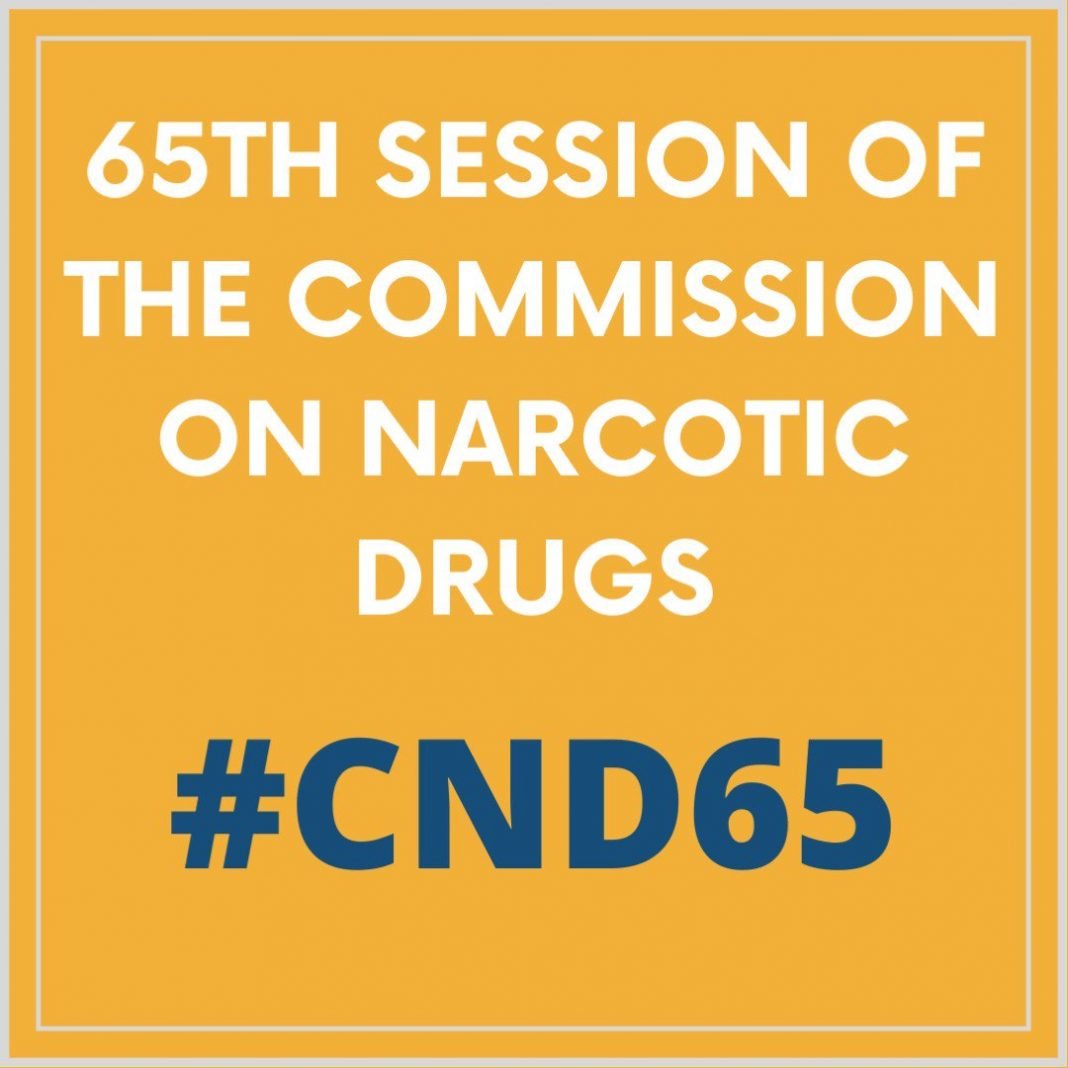Vienna, 19 March 2022 (TDI): Russian Deputy Minister of Foreign Affairs, Oleg Syromolotov gave a statement at the 65th session of the United Nations Commission on Narcotic Drugs. Following is the text of the statement:
Statement of the head of the delegation of the Russian Federation at the 65th session of the United Nations Commission on Narcotic Drugs Deputy Minister of Foreign Affairs, Oleg Syromolotov
Mr. Chairman,
Let me congratulate you and other Members of the Commission on the opening of its anniversary session. For sixty-five years the Commission through its continuous activities based on the Vienna spirit of consensus has proven relevant as the key platform for addressing and countering the world drug problem.
Throughout all these years the three drug control conventions have constituted the strong foundation of our international legal cooperation. It is symbolic that this year we celebrate the anniversary of the 1972 Protocol to the Single Convention on Narcotic Drugs of 1961.
It is unfortunate that today we see attempts to shatter this foundation and distort its essence. Legalization of free distribution of cannabis in such countries as the United States of America and Canada is a matter of serious concern for us.
It is worrisome that several Member States of the European Union are currently considering violating their drug control obligations. Such approach is unacceptable. Strict compliance of all State Parties with their obligations under the conventions is the precondition for the smooth functioning of the global drug control regime.
Russia is consistently advocating that only those States that are implementing the provisions of the conventions in good faith have the moral right to participate in the activities of the Commission. By applying a different approach we risk undermining the authority of the Commission which is the policy-making body of the United Nations with prime responsibility for drug control matters.
The COVID-19 pandemic has illuminated weak links in the national counter narcotics mechanisms. Drug criminals have visibly expanded their presence in the digital sphere. In order to counter this cross-border phenomenon law-enforcement authorities need to apply new working methods and enhance practical cooperation between them.
This is the rationale behind the Russian draft resolution. We invite all delegations to attend the Russia-sponsored side-event on this topic to be held on March 16 and aimed inter alia at contributing to the implementation of BRICS guidelines on countering drug-related money-laundering activities.
Social isolation has increased existing vulnerabilities to drug abuse, in particular for the younger generation. Drug prevention and awareness-raising activities on the adverse consequences of the non-medical use of harmful substances is our forefront task. We will continue to support the UNODC Youth Initiative aimed at promoting healthy lifestyles among the youth.
While countering the spread of the Coronavirus disease the Russian drug control strategy prioritizes uninterrupted supply of medicines containing narcotic drugs to population. We welcome the decision of the Commission to emphasize this topical issue for all regions at the opening of the general debate.
Another matter of serious concern to us is the situation in Afghanistan. Freeze on the national financial resources of Afghanistan made illicit opium poppy cultivation and production practically the only viable income source for the population.
The Moscow meeting of the Paris Pact Initiative in December 2021 made a substantive contribution to the international discussion on the drug-related aspects of the situation in and around Afghanistan.
The Collective Security Treaty Organization and the Shanghai Cooperation Organization create a durable shield against the spread of Afghan drug threat through the Northern Route. We value our long-standing partnership with the UNODC in law-enforcement capacity building.
Geography of our bilateral and regional counter narcotics cooperation is gradually expanding. Last year the ASEAN-Russia leaders adopted the joint statement on fighting against illicit drugs trafficking, which laid down a solid foundation for practical cooperation between our competent authorities.
We are bewildered at the insistent attempts of some Member States to politicize the work of the current session. We are adamantly opposed to such black PR campaigns, which are not related to the mandate of the Commission. This approach damages the reputation of this important international body and could erode the trust of the world community in it.
Russia is always committed to a constructive, substantive discussion in the Commission. We hope that the results of this session will make a solid contribution into our effective joint response to drug-related criminality.
Thank you for your attention.






